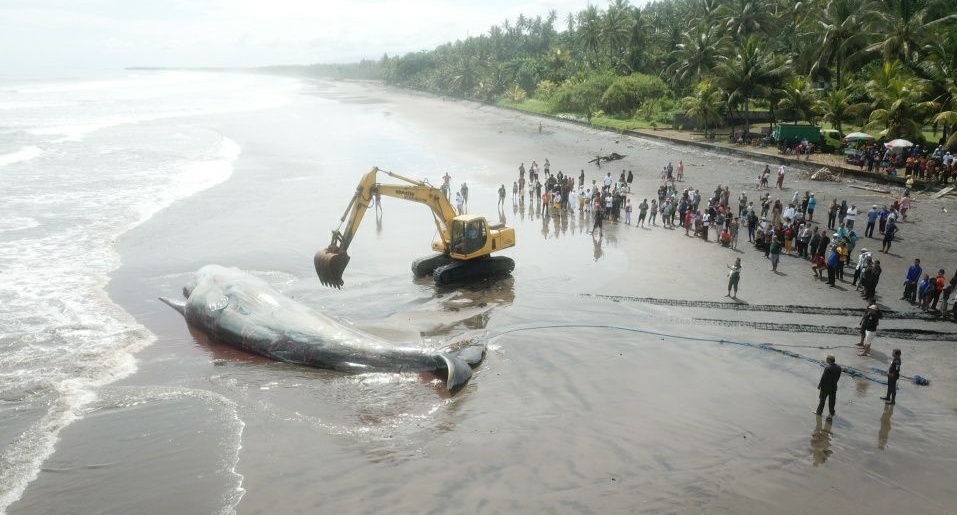Another whale was found dead on a Bali beach over the weekend, bringing the number of large sea mammals washing ashore on the island to three this year. Authorities are looking into possible causes of the troubling phenomenon.
The most recent case involved a female sperm whale, which locals found dead on Saturday at Yeh Leh Beach in Jembrana. The whale was buried at the same beach yesterday at 9pm after undergoing a necropsy.
Non-profit organization Yayasan Bali Bersih’s marine environment program officer Pande Ketut Cahya Krisnanta told Coconuts Bali that the third whale’s carcass was already decomposing when it was found.
“For now, we, along with a team of vets, agreed to state that the whale was ‘sick’ and that was why it washed ashore. As for what illness, we need to wait for lab results and that can take up to three to four weeks,” he said in a text message.
Previously, another female sperm whale was found dead on a beach in Karangasem on April 6. Several hours prior, the whale had washed ashore on a beach in Klungkung and was reported to be wounded but alive. Local residents and authorities managed to push the whale back into the ocean with the help of a rising tide, but the sea mammal met her tragic end not long after.
It was also determined that the second female sperm whale was sick, though experts have not yet been able to determine specific details about her condition.
The first whale that was found dead this year – a Bryde’s whale – washed ashore on Jan. 19 at Seseh Beach in Munggu. The cause of its death was not determined because the carcass was so decomposed that it was impossible to perform a necropsy.
R. Agus Budi Santosa, the head of the Bali Office of Indonesia’s Natural Resources Conservation Center (BKSDA), suspects several causes of the phenomenon, including an increase in noise pollution in the ocean and extreme weather change.
“It should be understood that the waters of Bali Island serve as an annual migration path for big sea mammals including sperm whales. The majority of fish and sea mammals follow the upwelling of warm sea current that is rich with planktons,” he said as quoted by CNN Indonesia.




